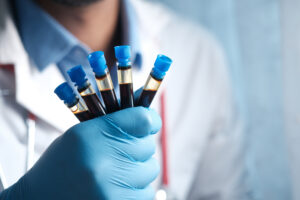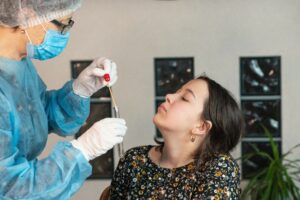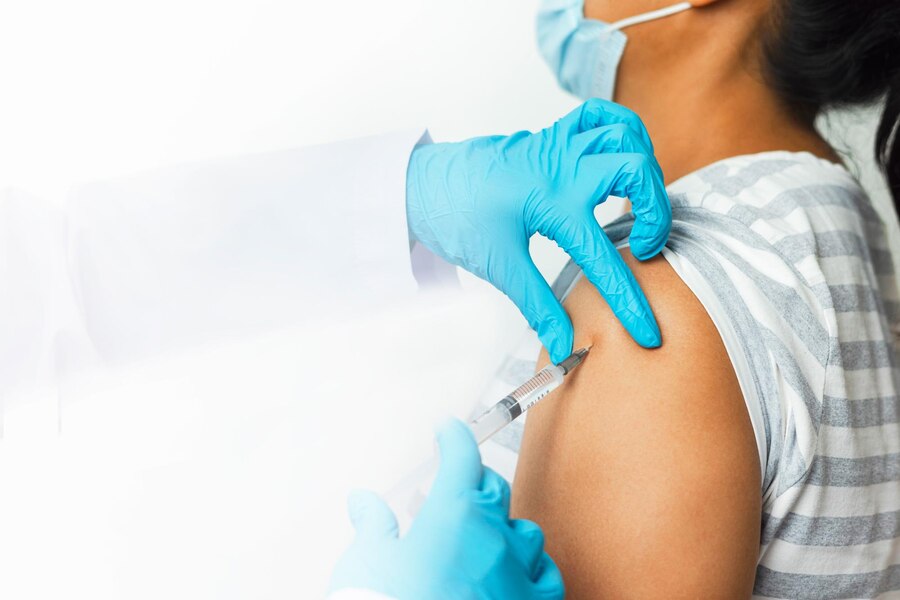As individuals age, hormonal changes become an inevitable part of the aging process. One hormone that plays a crucial role in men’s health is testosterone. Testosterone is a hormone responsible for the development of male reproductive tissues and the maintenance of male characteristics.
As men age, testosterone levels tend to decline, leading to various physical and psychological changes. In recent years, there has been increasing interest in testosterone therapy as a means to address these changes and improve overall well-being.
In this blog post, we’ll explore what testosterone therapy is, its potential benefits, risks, and considerations for those curious about this form of treatment.
Understanding Testosterone and its Importance
Testosterone is a sex hormone primarily produced in the testicles. It is responsible for the development of male reproductive organs, such as the testes and prostate, and plays a key role in the development of secondary sexual characteristics like facial hair, deepening of the voice, and muscle mass.
Testosterone also contributes to overall health and well-being. It helps maintain bone density, muscle mass, and red blood cell production. Furthermore, testosterone influences mood and energy levels. However, as men age, testosterone levels naturally decline, and this decline can lead to a range of symptoms.

Common Symptoms of Low Testosterone
Low testosterone, often referred to as hypogonadism, can manifest in various symptoms. It’s important to note that these symptoms can also be caused by other medical conditions, so a thorough evaluation by a healthcare professional is crucial. Some common symptoms of low testosterone include:
- Fatigue and Decreased Energy Levels: Low testosterone levels can contribute to feelings of fatigue and a lack of energy.
- Reduced Libido: Testosterone plays a significant role in sexual desire, and a decline in testosterone levels can lead to a reduced libido.
- Erectile Dysfunction: Testosterone is crucial for achieving and maintaining erections, and low levels may contribute to erectile dysfunction.
- Mood Changes: Changes in testosterone levels can impact mood, leading to irritability, depression, or anxiety.
- Decreased Muscle Mass and Strength: Testosterone is essential for the maintenance of muscle mass and strength, and low levels can result in a decline in these areas.
- Increased Body Fat: Testosterone helps regulate fat distribution, and low levels may contribute to an increase in body fat.
Understanding Testosterone Therapy
Testosterone therapy, also known as androgen replacement therapy, involves the administration of testosterone to increase low levels of the hormone. This can be achieved through various methods, including injections, gels, patches, or pellets implanted under the skin.
It’s important to note that testosterone therapy is not a one-size-fits-all solution. The decision to undergo testosterone therapy should be based on a thorough assessment by a qualified healthcare professional, taking into consideration an individual’s overall health, medical history, and specific symptoms.

Types of Testosterone Therapy:
There are various forms of testosterone therapy, each with its unique characteristics. It’s important to discuss the options with a healthcare provider to determine the most suitable approach. The common types of testosterone therapy include:
- Intramuscular Injections: This is one of the most common forms of testosterone therapy. Intramuscular injections are administered into the muscles, typically on a weekly or bi-weekly basis. This method allows for a slow, sustained release of testosterone into the bloodstream.
- Topical Gels and Patches: Testosterone gels and patches are applied directly to the skin, allowing for absorption into the bloodstream. This method provides a more continuous release of testosterone. Gels are usually applied to the shoulders, upper arms, or abdomen, while patches are applied to different areas of the body.
- Subcutaneous Pellets: Testosterone pellets are small, subcutaneous implants that are placed under the skin, usually in the hip or buttock area. These pellets slowly release testosterone over several months, eliminating the need for frequent administrations.
Potential Benefits of Testosterone Therapy
- Improved Sexual Function: One of the primary reasons individuals seek testosterone therapy is to address issues related to sexual function, including increased libido and improved erectile function.
- Increased Energy Levels: Testosterone plays a role in energy regulation, and individuals with low testosterone may experience increased energy levels with therapy.
- Enhanced Mood: Testosterone has been linked to mood regulation, and some individuals may experience improved mood and reduced symptoms of depression or anxiety with testosterone therapy.
- Preservation of Bone Density: Testosterone is crucial for maintaining bone density, and therapy may help prevent osteoporosis and fractures associated with bone loss.
- Increased Muscle Mass and Strength: Testosterone is an anabolic hormone that promotes the growth of muscle tissue. Individuals undergoing testosterone therapy may experience an increase in muscle mass and strength.
Risks and Considerations
While testosterone therapy can offer benefits for some individuals, it is not without risks and considerations. It’s important to approach testosterone therapy with caution and under the guidance of a healthcare professional. Some potential risks and considerations include:
- Cardiovascular Risks: There has been some controversy and ongoing research regarding the potential cardiovascular risks associated with testosterone therapy. It is crucial for individuals with a history of cardiovascular disease to discuss these concerns with their healthcare provider.
- Prostate Health: Testosterone plays a role in the growth of the prostate, and there is a concern that testosterone therapy may contribute to an enlargement of the prostate or increase the risk of prostate cancer. Regular monitoring and discussions with a healthcare professional are essential.
- Polycythemia: Testosterone therapy can stimulate the production of red blood cells, leading to an increase in blood viscosity. This may result in a condition known as polycythemia, which requires close monitoring.
- Infertility: Testosterone therapy can suppress sperm production, leading to infertility. Individuals concerned about fertility should discuss this with their healthcare provider.
- Skin Irritation: Topical forms of testosterone, such as gels or patches, may cause skin irritation. It’s important to follow application instructions carefully and report any adverse reactions to a healthcare professional.
Conclusion
Testosterone therapy can be a viable option for individuals experiencing symptoms of low testosterone, but it is not a decision to be taken lightly. A thorough assessment by a qualified healthcare professional is essential to determine if testosterone therapy is appropriate for an individual’s specific circumstances. Additionally, regular monitoring and open communication with a healthcare provider are crucial to managing potential risks and optimizing the benefits of testosterone therapy.
It’s important to recognize that individual responses to testosterone therapy can vary, and not everyone will experience the same outcomes. As with any medical intervention, the decision to undergo testosterone therapy should be based on a comprehensive understanding of the potential benefits and risks, with the guidance of a healthcare professional. If you are curious about testosterone therapy, schedule a consultation with a healthcare provider to discuss your symptoms, concerns, and the most appropriate course of action for your unique situation.



